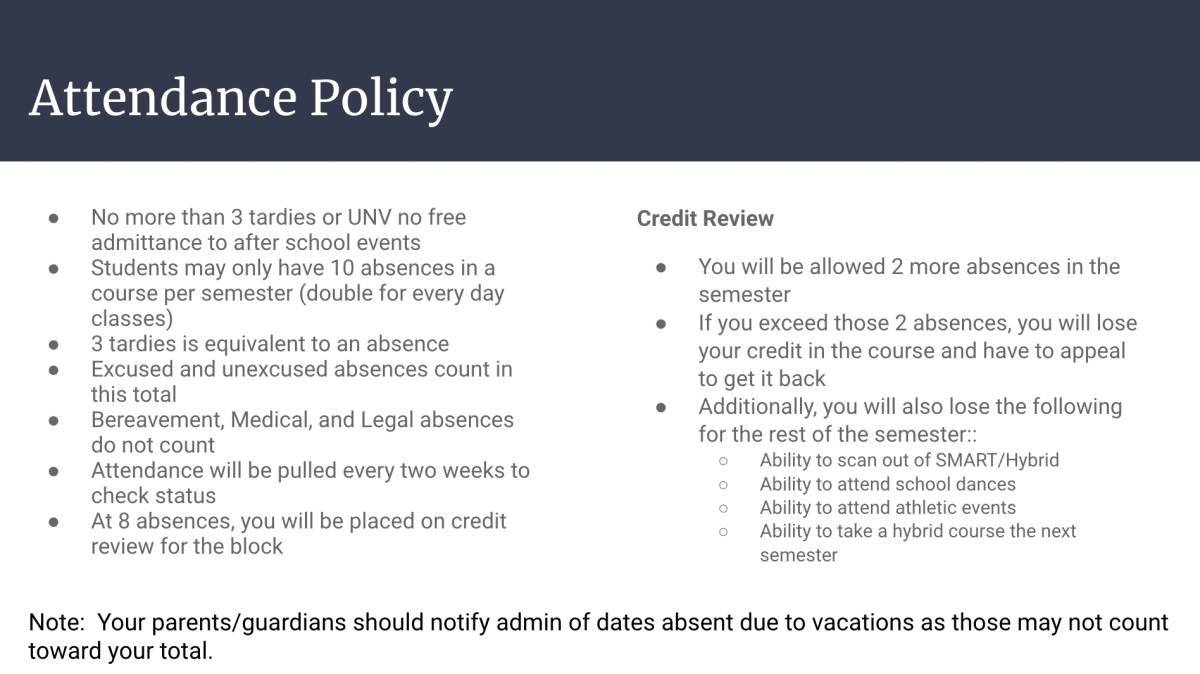As September dawns, students face a grueling nine months of nonstop school. Six hours for five days a week, students sit in a classroom doing work and eagerly counting down the days until graduation. But then there’s a cough, a sneeze, a gust of wind, and sick season blows in like a tremendous wave.
It appears easy enough. Acquire a doctor’s note and the absence won’t count. Everything is fine as long as students don’t have ten absences, unexcused or excused. But it’s more complicated than that.
At eight absences, students are called into their counselors offices to discuss it. After ten, students lose privileges such as scanning out or attending school games, and have to appeal for their credit back. Instead of helping students stay in school, it makes it harder for them to pass classes.
“I would miss school because I was sick a lot, or I had to take care of my little siblings. Sometimes I could get doctor’s notes, sometimes I couldn’t,” said Anna Jackson, a previous Fraser High School students.
Doctors’ notes can be hard to get. Students have to schedule an appointment, pay money, and then wait to be checked out for something as easily treatable as a cold. Sometimes, students stayed home for mental health reasons, or other reasons such as simply spending time with family or one day of fun.
“My grades did slip because of the days I missed, and participation points I lost. But I missed school just as much before the ten absence rule, and after. It didn’t help me. I think the rule should be changed to accommodate students who get good grades,” said Jackson.
Jackson got her grades up eventually, and even graduated a year earlier than her peers. But she missed a lot of school days. She had siblings to take care of, parents who constantly worked, and on top of that often fell ill. The only reason she didn’t lose credit was because she maintained constant communication with Mr. Howell.
Jackson is lucky she was able to get out of losing credit. Other students might not share that same luck. Why should a student have to reveal details about their personal life because of a rule that ignores hard work ethic? A student could attend school every day and get bad grades, while another could miss a lot of days and get good grades, but still lose credit.
It should be up to the students to keep their grades up, whether they were in school or not. It doesn’t make sense to punish straight A students who have ten absences or more. It is already punishment enough if a student’s grades slipped because they chose not to attend class.
The school does offer the chance to appeal for credit back. But it is a long process that includes parents meeting with admin. If the student has good grades, they might get their credit back, though it is not guaranteed. And that student will not regain privileges until the next semester.
The ten absence rule seems helpful in theory, but it doesn’t take into account students who may have a lot of things going on in their lives but still maintain their good grades. Sometimes, it might not even be the students fault but a parents or another outside force. Most colleges won’t have a rule like this, and will leave failing or passing up to the individual student, and most jobs allow people to request time off.








